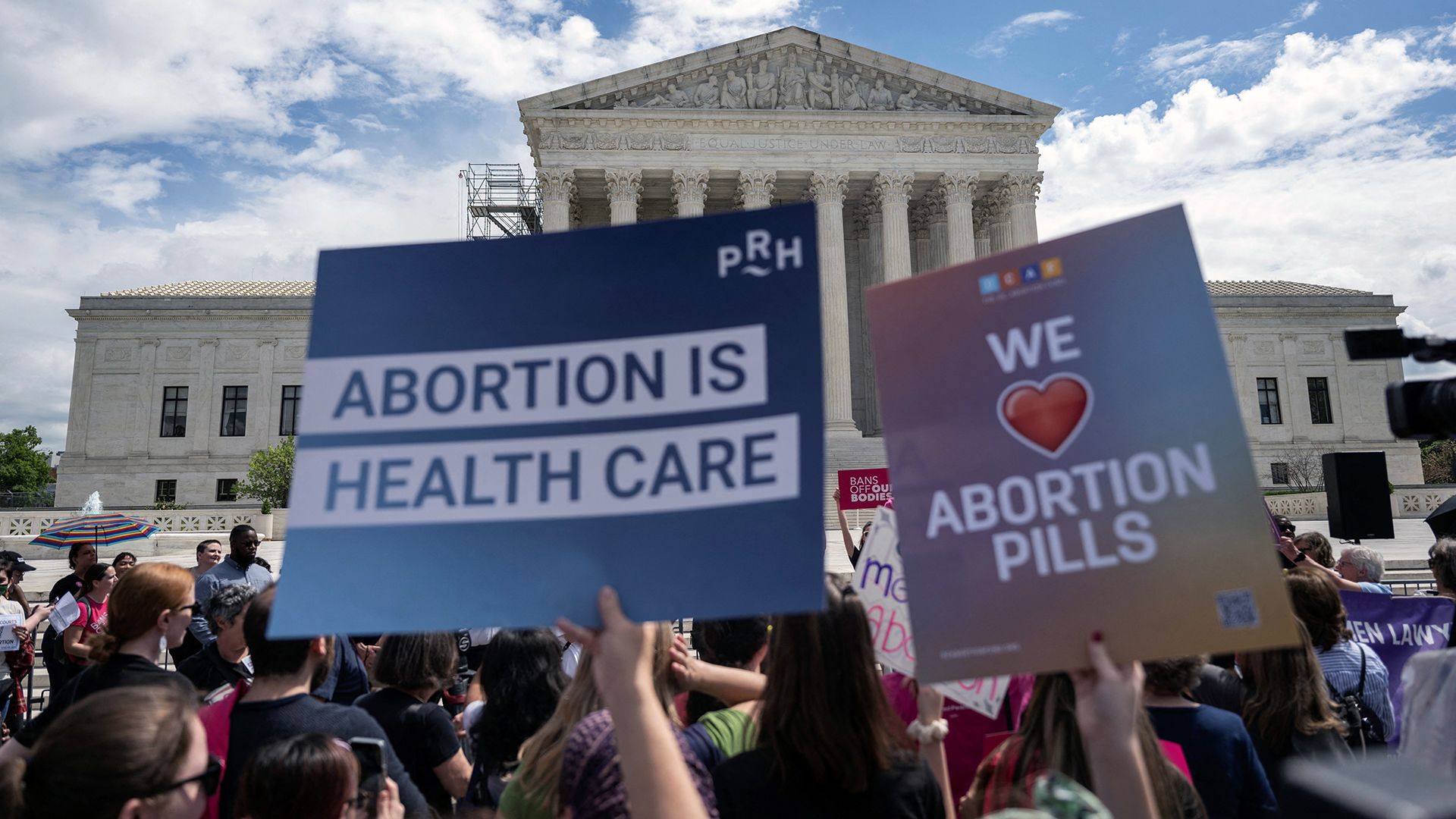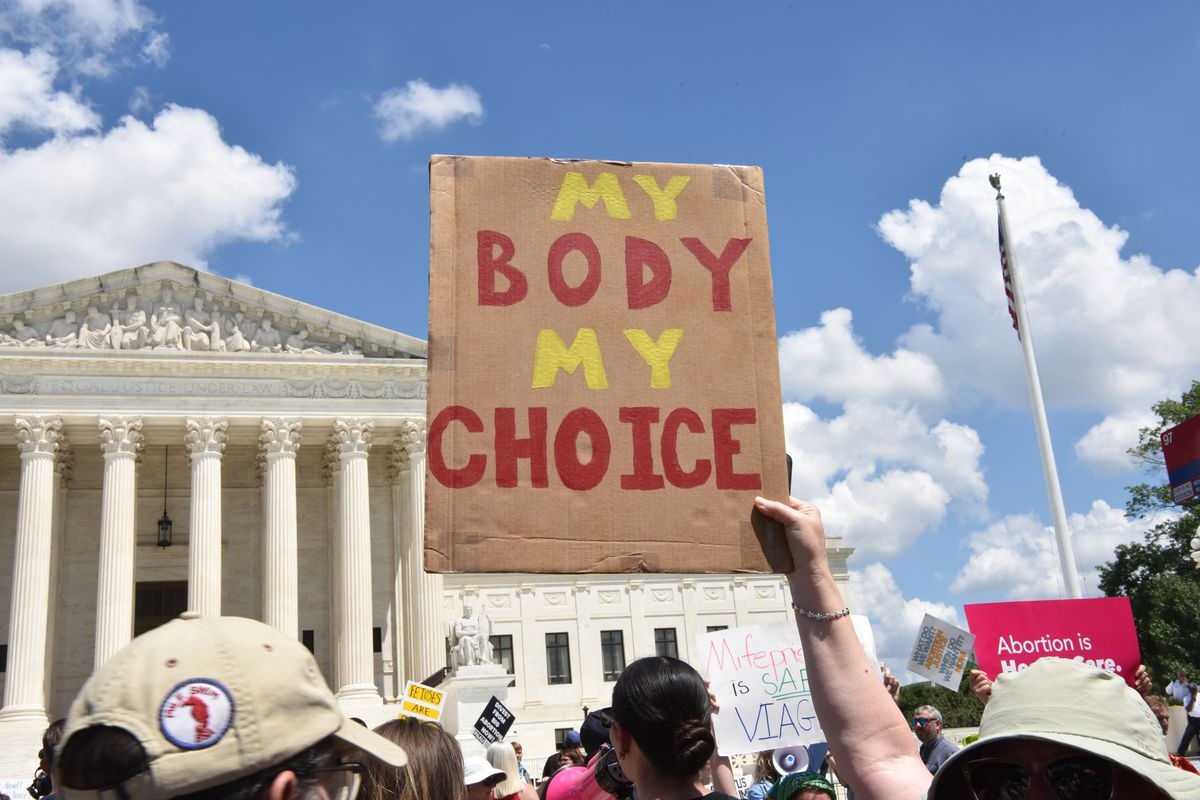The Supreme Court is currently deliberating on a pivotal case that could significantly limit access to mifepristone, a medication essential for abortion, following the 2022 decision that revoked the constitutional right to abortion.
This situation has heightened concerns as Republicans nationwide counter attempts to secure the usage of birth control and other contraceptive methods. A wide-reaching verdict against the Food and Drug Administration’s (FDA) endorsement of mifepristone might lead to additional legal contests against several medications.
These include emergency contraception like Plan B, birth control pills, vaccines, and hormone therapies for gender transition, all of which have faced criticism from conservative factions.
At the heart of the Supreme Court’s consideration is a challenge led by a group of anti-abortion doctors against the FDA’s 2016 and 2021 decisions. These decisions permitted the use of abortion pills up to 10 weeks into pregnancy and allowed for the remote prescription of these medications.

Abortion pill Protest (Credits: CNN)
Despite being recognized by major medical associations as a secure method for terminating early pregnancies, opponents are striving to present a contrary argument to the justices.
The allowance for these medications to be mailed to patients means that currently, 63% of abortions in the U.S. are carried out via medication. A ruling in favor of the opposition could severely impact support networks that assist individuals in restrictive states to obtain these drugs.
The opposition to contraceptives by many anti-abortion groups is rooted in religious beliefs, frequently mischaracterizing birth control and Plan B as abortifacients. Legislative efforts in several conservative states aim to establish that life begins at conception, a move critics view as a preliminary step toward banning contraceptives.
As abortion becomes illegal in 14 states and with the national high court scrutinizing abortion pills, advocates for reproductive rights alert that contraception could be the next target of the anti-abortion campaign, despite reassurances from some Republicans.
Public sentiment heavily favors access to contraception, yet Republican lawmakers face considerable pressure from their base, including Christian nationalists and anti-abortion organizations, to limit these rights.
Democratic strategist Stephanie Schriock remarked on the longstanding opposition to contraceptives by the anti-abortion movement, a stance that has remained somewhat overshadowed by their focus on abortion.
In the wake of the Supreme Court nullifying the right to abortion, 195 House Republicans opposed a bill that would have safeguarded access to contraceptives, including Plan B and birth control pills. Attempts to legislate contraceptive rights have struggled to advance in several states, with only Virginia passing important legislation awaiting the governor’s approval.
Controversies continue, such as in Tennessee, where GOP legislators dismissed bills clarifying that contraception and in vitro fertilization are not criminalized under the state’s stringent abortion laws.
This rejection underscores the underlying threat to reproductive healthcare, emphasized by a 2022 investigation into anti-abortion groups’ intentions to limit access to contraceptives post-abortion ban.

Abortion pill (Credits: Vox)
Arizona’s political scene also reflected this conflict, with a prominent Republican’s disparaging comments about contraceptive methods sparking an outcry, further illustrating the challenges faced in securing contraceptive rights under Republican leadership.
Kimberly Inez McGuire of URGE highlighted the crucial role of medications like mifepristone and misoprostol in reproductive healthcare during a rally, criticizing the baseless and misogynistic arguments presented against these drugs.
The Republican stance against contraception places the party in a precarious position with voters, the vast majority of whom support contraceptive rights. This issue, according to Schriock, presents a big dilemma for the party in future elections, driven by ideological commitments and the influence of the anti-abortion lobby within the party.
As the Supreme Court weighs this case, the broader implications for FDA authority and healthcare rights hang in the balance. A decision is anticipated in June. The court’s ruling could either reinforce or challenge the FDA’s regulatory decisions, potentially affecting a wide range of medical treatments beyond abortion medication.























